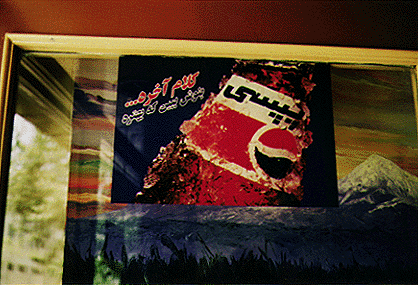“It is the Syrians, however, who feed Mr. Jumblatt's anxieties.”
"At first they said they wanted to create a buffer zone of 20 kilometers to put in an international force. But what does that mean when Hezbollah can fire rockets over your back? Now there is a new formula: the demilitarization of the South."
 The Beirut Daily Star’s opinion editor and Reason Magazine contributing editor Michael Young writes of his recent interview with Lebanese Druze leader and Progressive Socialist Parliamentarian Walid Jumblatt.
The Beirut Daily Star’s opinion editor and Reason Magazine contributing editor Michael Young writes of his recent interview with Lebanese Druze leader and Progressive Socialist Parliamentarian Walid Jumblatt.There is a strong desire for retribution in the Shiite community. Quite a few politicians, including Mr. Jumblatt, have implied that Hezbollah's abduction of two Israelis soldiers was irresponsible, which many of the group's faithful deem to be a stab in the back. This prompted Mr. Nasrallah to declare, ominously, in an Al Jazeera interview last week: "If we succeed in achieving the victory . . . we will never forget all those who supported us. . . . As for those who sinned against us . . . those who let us down, and those who conspired against us . . . this will be left for a day to settle accounts. We might be tolerant with them and we might not."
Hizballah, he says, must be disarmed. These are hard words to say right now. No Arab leader, let alone the Lebanese government held hostage in the grips of Hizballah can openly criticize them in this “resistance” that they’ve initiated at the expense of the population.
What does Mr. Jumblatt think of that threat, obviously directed against him and his political comrades? "Nasrallah was talking in the name of the Syrian regime. He thinks he's a demigod. Like [Iran's President Mahmoud] Ahmadinejad he's waiting for the 12th Imam, the Mehdi. This aspect of Shiite religious mobilization can be frightening."Mr. Jumblatt is dubious. "Rice didn't clarify how the international force would deploy. As I've told the Americans: As long as Syria can send weapons to Hezbollah, there will be no change in the situation. Not with this regime in Damascus. We need a force that can cover all of Lebanon, like in Kosovo. Monitor the Syrian border, then talk."
In it he stands steadfast in the longstanding Druze tradition of finding a way to coexist in a cold peace at the very least, and protecting itself as a minority surrounded by otherwise hostile factions. The first leader of Lebanon prior to the post-Ottoman age, as well as a passionate guarantor of the protection of the Christians was a Druze Emir without who there may not be a notion of a Lebanon that lives to this day.
If Hezbollah refuses to disarm (and it does), "then we enter a phase of all-out war, endless war, with the possibility that this will weaken the Lebanese state. Let us also remember that the Syrians a few days ago promised the Americans they would help them fight al Qaeda. This was, in fact, a backhanded warning that Syria could use al Qaeda to kill innocents in Lebanon."
Having recently both called the men of the south “our brothers” and as we see in an interview with Al-Arabiya Television (20 July) [video courtesy of MEMRI] he walks a tenuous and complicated line in the duplicitous world of Lebanese politics. In it he criticizes Hizballah leader Hassan Nasrallah of the obvious: he committed a nation to war. Jumblatt states clearly that he finds their handler and go-between Syria complicit. It needs to be understood that his relationship with Syria is a bitter and detailed as any in the region. His leadership of the Druze community began with the murder of his own father which was directed by Hafez Assad in 1977.
Unlike virtually every faction in the Lebanese zeitgeist, Jumblatt is certainly no-body’s fool. As for why Hizballah would do this now, one doesn’t need to be a cynic to see that they have to lose when people are free to function without having the rug pulled out from under them.the fuse is lit!














 Never mind that
Never mind that 


























